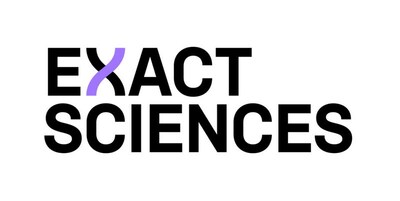Next-Generation Cologuard® Test Demonstrates High Sensitivity and Specificity in Pivotal BLUE-C Study, Significantly Outperforming Fecal Immunochemical Testing (FIT) for Cancer and Precancer Detection
- The next-generation Cologuard test demonstrated 94% sensitivity for colorectal cancer at 91% specificity, which could positively affect the stock price.
- Results show that the next-generation Cologuard test was significantly more likely to detect cancer or precancer than FIT, which could positively affect the stock price.
- None.
Insights
Analyzing...
American College of Gastroenterology (ACG) gives BLUE-C study late breaker status at 2023 annual meeting with presentation of the only head-to-head study results versus FIT at ACG
High specificity for next-generation Cologuard test expected to minimize unnecessary follow-up colonoscopies, supporting positive patient experiences1
BLUE-C is one of the largest, most robust CRC screening trials ever conducted. It included more than 20,000 evaluable subjects in a population that aligns to the racial and ethnic diversity of
"BLUE-C results demonstrate a new standard in non-invasive colorectal cancer and precancer detection, building on the strengths of current Cologuard," said Paul Limburg, MD, MPH, AGAF, chief medical officer, Screening, Exact Sciences. "The high sensitivity and specificity reported in BLUE-C will help drive improvement in patient experiences and will contribute to our quest to improve outcomes for this deadly cancer via accurate early detection."
Most advanced | Next-gen | FIT |
Sensitivity (%) | Sensitivity (%) | |
CRC, any | 94 | 67 |
Stage I-III | 93 | 65 |
Advanced Pre- | 43 | 23 |
High-grade | 75 | 47 |
Note: FIT positivity cut-off: hemoglobin >100 ng/mL. Colorectal cancer stages were defined per the American Joint Committee on Cancer Staging System, 8th ed.
BLUE-C Reports High Specificity
In addition to superiority over FIT in sensitivity for both colorectal cancer and advanced precancerous lesions, the next-generation Cologuard test demonstrated
"Improving specificity of non-invasive stool-based screening tests while maintaining high sensitivity is a critical step in advancing the detection and prevention of colorectal cancer and minimizing the potential for unnecessary follow-up colonoscopies," said Thomas F. Imperiale, MD, Professor of Medicine at the Indiana University School of Medicine, research scientist at the Regenstrief Institute, and principal investigator for BLUE-C.
The
Additional Analysis Presented at ACG Further Supports Performance of Next-Generation Cologuard
In addition to the BLUE-C pivotal data shared at ACG, Exact Sciences presented an analysis that describes a performance evaluation and validation of the next-generation Cologuard algorithm using a set of known test samples from the original Cologuard pivotal study (DeeP-C). In this additional analysis, all performance estimates of next-generation Cologuard performance were equivalent to or higher than the first-generation Cologuard test, confirming reproducibility and supporting clinically relevant performance of the next-generation Cologuard test.[4]
"Promising data from the BLUE-C trial involving 20,000 patients is being presented at the American College of Gastroenterology," said Seth A. Gross, MD, professor of medicine, NYU Grossman School of Medicine. "The findings indicate that the next-generation mt-sDNA test demonstrates even higher sensitivity for colorectal cancer screening (
About the BLUE-C Study
BLUE-C was a multi-center, prospective study (NCT04144738) of more than 20,000 adults 40 years of age and older.[1] The trial was designed to evaluate the performance of next-generation Cologuard (multi-target stool DNA or mt-sDNA). Using colonoscopy as a reference method, the robust study design compared next-generation Cologuard and a fecal immunochemical test (FIT*). Blood samples were also collected for later evaluation of a blood-based screening test being developed by Exact Sciences. BLUE-C is one of the largest colorectal cancer screening trials ever conducted, and the study population reflects the racial and ethnic makeup of
About Next-Generation Cologuard
Developed in partnership with Mayo Clinic, the next-generation Cologuard test features novel biomarkers and improved laboratory processes. It also incorporates enhanced sample stability components to provide patients more time to return their sample to Exact Sciences' lab and increase the valid result rate.
In the coming months, Exact Sciences plans to release additional analyses of the BLUE-C data and complete its application to the FDA for approval of next-generation Cologuard.
About Cologuard
Cologuard revolutionized colorectal cancer screening by providing a convenient and accurate testing option for those at average risk. Nearly a decade later, Cologuard has been used to screen for colorectal cancer more than 12 million times.
Results from Exact Sciences' prospective, 90-site, point-in-time, 10,000-patient pivotal trial, DeeP-C, were published in the New England Journal of Medicine in March 2014. The Cologuard test is included in the American Cancer Society's (2018) colorectal cancer screening guidelines and the recommendations of the
The Cologuard test result should be interpreted with caution. A positive test result does not confirm the presence of cancer. Patients with a positive test result should be referred for colonoscopy. A negative test result does not confirm the absence of cancer. Patients with a negative test result should discuss with their doctor when they need to be tested again. Medicare and most major insurers cover the Cologuard test. For more information about the Cologuard test, visit cologuard.com. Rx only.
About Exact Sciences Corp.
A leading provider of cancer screening and diagnostic tests, Exact Sciences gives patients and health care professionals the clarity needed to take life-changing action earlier. Building on the success of the Cologuard® and Oncotype® tests, Exact Sciences is investing in its pipeline to develop innovative solutions for use before, during, and after a cancer diagnosis. For more information, visit ExactSciences.com, follow Exact Sciences on X (formerly known as Twitter) @ExactSciences, or find Exact Sciences on LinkedIn and Facebook.
NOTE: Exact Sciences and Cologuard are trademarks or registered trademarks of Exact Sciences Corporation. Oncotype is a registered trademark of Genomic Health, Inc., a wholly-owned subsidiary of Exact Sciences Corporation. All other trademarks and service marks are the property of their respective owners.
Forward-Looking Statements
This news release contains forward-looking statements concerning our expectations, anticipations, intentions, beliefs, or strategies regarding the future. These forward-looking statements are based on assumptions that we have made as of the date hereof and are subject to known and unknown risks and uncertainties that could cause actual results, conditions and events to differ materially from those anticipated. Therefore, you should not place undue reliance on forward-looking statements. Examples of forward-looking statements include, among others, statements we make regarding the development and commercialization of the next-generation Cologuard test; the performance characteristics of next-generation Cologuard in a commercial setting; and the timing and anticipated results of additional analysis of the BLUE-C data and FDA submission. Risks and uncertainties that may affect our forward-looking statements are described in the Risk Factors sections of our most recent Annual Report on Form 10-K and any subsequent Quarterly Reports on Form 10-Q, and in our other reports filed with the Securities and Exchange Commission. We undertake no obligation to publicly update any forward-looking statement, whether written or oral, ®that may be made from time to time, whether as a result of new information, future developments or otherwise.
*The commercially-available Polymedco OC-Auto® Micro 80iFOB Test
References
- Imperiale T, et al. Oral Presentation 54, ACG 2023.
- United States Census Bureau. Annual Estimates of the Resident Population by Single Year of Age and Sex for
the United States : April 1, 2020 to July 1, 2022 (NC-EST2022-AGESEX-RES). Accessed 16 October 2023. https://www.census.gov/data/tables/time-series/demo/popest/2020s-national-detail.html - Imperiale TF, et al. N Engl J Med. 2014;370(14):1287-1297.
- Imperiale T, et al. P0358, ACG 2023.
Media ( Lindsey Dickinson | Investor: Megan Jones |
+1 608-690-0383 | +1 608-535-8815 |
![]() View original content to download multimedia:https://www.prnewswire.com/news-releases/next-generation-cologuard-test-demonstrates-high-sensitivity-and-specificity-in-pivotal-blue-c-study-significantly-outperforming-fecal-immunochemical-testing-fit-for-cancer-and-precancer-detection-301963667.html
View original content to download multimedia:https://www.prnewswire.com/news-releases/next-generation-cologuard-test-demonstrates-high-sensitivity-and-specificity-in-pivotal-blue-c-study-significantly-outperforming-fecal-immunochemical-testing-fit-for-cancer-and-precancer-detection-301963667.html
SOURCE EXACT SCIENCES CORP







